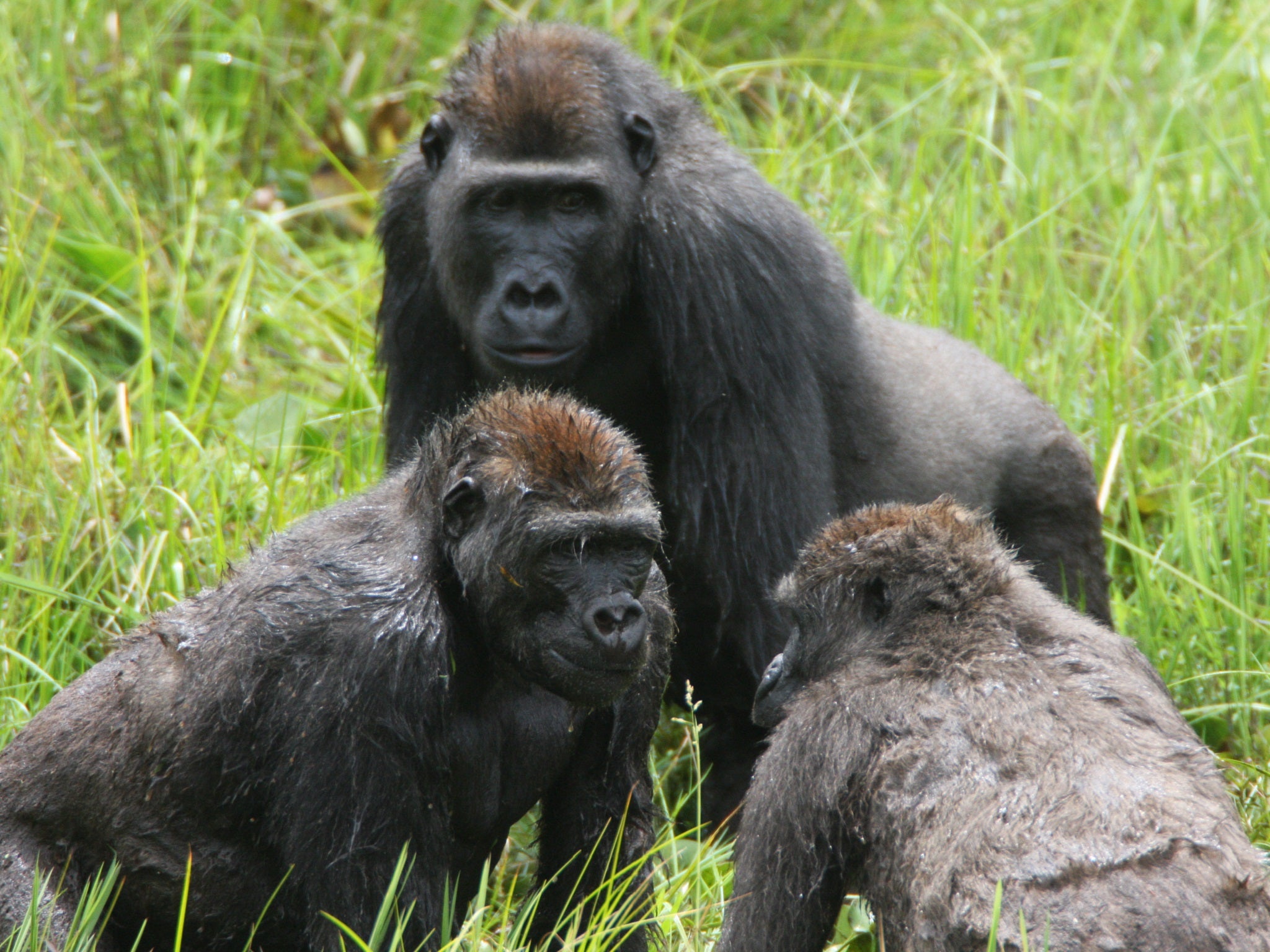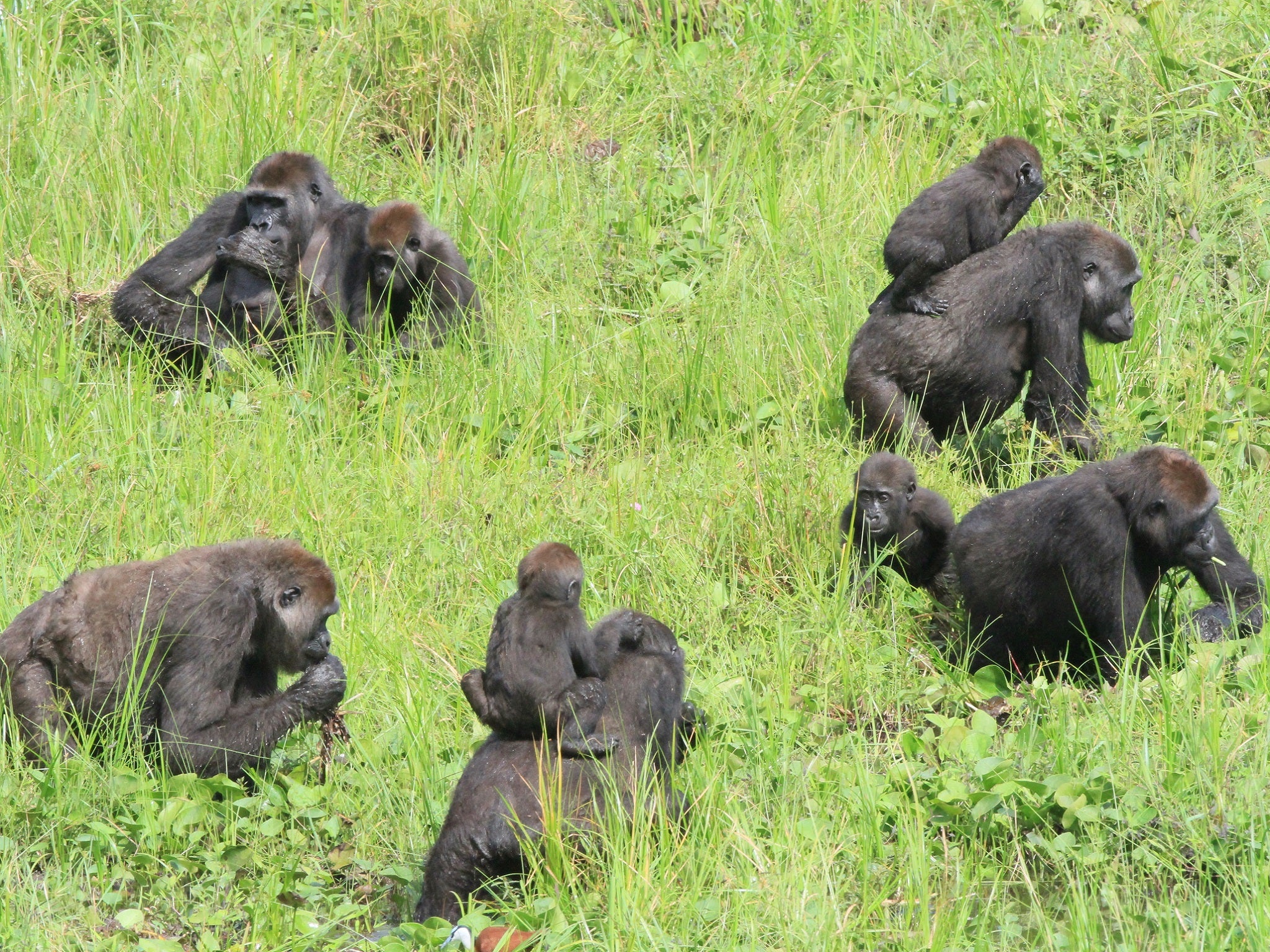Gorillas form lifetime bonds with distant relations just like humans, study finds
Scientists discover gorillas have regular interaction with extended family and ‘friends’ just like us

Your support helps us to tell the story
From reproductive rights to climate change to Big Tech, The Independent is on the ground when the story is developing. Whether it's investigating the financials of Elon Musk's pro-Trump PAC or producing our latest documentary, 'The A Word', which shines a light on the American women fighting for reproductive rights, we know how important it is to parse out the facts from the messaging.
At such a critical moment in US history, we need reporters on the ground. Your donation allows us to keep sending journalists to speak to both sides of the story.
The Independent is trusted by Americans across the entire political spectrum. And unlike many other quality news outlets, we choose not to lock Americans out of our reporting and analysis with paywalls. We believe quality journalism should be available to everyone, paid for by those who can afford it.
Your support makes all the difference.Gorillas form lifelong bonds with distant relations just like humans, according to a new study.
Researchers found that the social structures among gorillas draw “striking parallels” to those in traditional human societies.
Their findings suggest that our own social systems stretch back to the common ancestor of humans and gorillas – far earlier than previously thought.
The study used more than six years of data from two research sites in the Republic of Congo, where scientists documented the social exchanges of hundreds of western lowland gorillas.
Gorillas tend to live in either small family units made up of a dominant male and several females with offspring or as solitary male “bachelors” – although they occasionally form “all-male bachelor” groups until they are ready to strike out on their own.
Using statistical algorithms, lead author Dr Robin Morrison discovered that beyond immediate family, there was also a tier of regular interaction between an average of 13 gorillas similar to our extended family such as aunts, grandparents and cousins.
A further tier of association involved an average of 39 gorillas, similar to a group that spends time together without necessarily being closely related.
Dr Morrison, from the University of Cambridge, said: “An analogy to early human populations might be a tribe or small settlement, like a village.”

The study found that where dominant males, known as “silverbacks”, were half-siblings, they were more likely to be in the same “tribe”.
However more than 80 per cent of the close associations researchers detected were between more distantly related, or even apparently unrelated, silverbacks.
Dr Morrison said: “Females spend time in multiple groups throughout their lives, making it possible for males not closely related to grow up in the same natal group, similar to step-brothers.
“The bonds that form may lead to these associations we see as adults.
“If we think of these associations in a human-centric way, the time spent in each other’s company might be analogous to an old friendship.”
The team of researchers also believe that gorillas may join forces at times to search for certain food that is easier to find by working together.
Dr Morrison said: “Our findings provide yet more evidence that these endangered animals are deeply intelligent and sophisticated, and that we humans are perhaps not quite as special as we might like to think.”
The study is published in the journal Proceedings of the Royal Society B.
Some of the data used came from a project in the early 2000s, but most of it was collected from the Mbeli Bai clearing, run by the Wildlife Conservation Society.
Join our commenting forum
Join thought-provoking conversations, follow other Independent readers and see their replies
0Comments